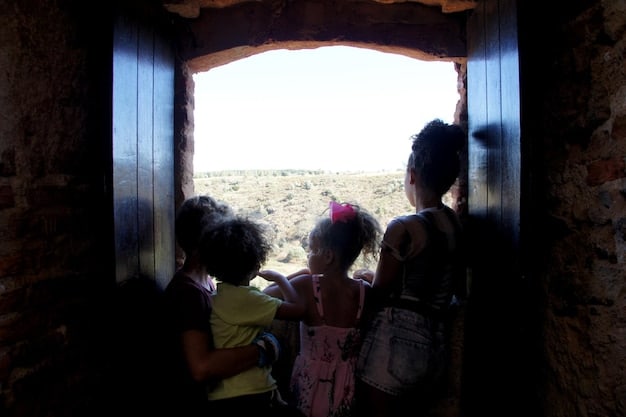US Immigration Policy: Impact on Mexico & Central America Relations

US immigration policy significantly shapes foreign relations with Mexico and Central America, influencing economic, social, and political dynamics in the region.
The intricate relationship between the United States and its southern neighbors, Mexico and Central America, is profoundly influenced by the impact of US immigration policy on foreign relations with Mexico and Central America. Understanding this impact is crucial for navigating the complex geopolitical landscape.
Understanding the Foundations of US Immigration Policy
US immigration policy serves as the backbone of interactions with Mexico and Central America. It dictates who can enter, reside, and work in the United States, profoundly shaping regional dynamics.
Historical Overview
The historical context of US immigration policy is critical. Past policies have laid the groundwork for current relations. Understanding this history provides perspective on present challenges and opportunities.
Key Legislation
Several key pieces of legislation define US immigration policy. Understanding these laws is essential for grasping the current state of affairs. The Immigration and Nationality Act (INA) and subsequent amendments significantly impact the US-Mexico and US-Central America relationship.
- The Immigration and Nationality Act (INA) sets the foundation for immigration laws.
- The Deferred Action for Childhood Arrivals (DACA) policy impacts many young immigrants.
- Border security enhancements affect the flow of migrants and goods across borders.
The foundations of US immigration policy are complex and multifaceted. They influence not only who can enter the US but also the broader relationship with Mexico and Central America. This understanding is vital for assessing the impact of these policies on foreign relations.

Economic Implications for Mexico and Central America
The economic consequences of US immigration policy reverberate throughout Mexico and Central America. Changes in immigration laws often dictate economic opportunities and challenges in the region.
Remittances
Remittances from the US constitute a significant portion of many Central American economies. Immigration policies directly affect the flow of these funds. When immigration enforcement tightens, remittances can decrease, impacting households dependent on this income.
Trade Relations
US immigration policy influences trade relations with Mexico and Central America. Border security measures can disrupt trade flows, affecting businesses and employment. The North American Free Trade Agreement (NAFTA) and its successor, the United States-Mexico-Canada Agreement (USMCA), intersect with immigration policy to shape economic interactions.
- Decreased remittances lead to reduced consumer spending in home countries.
- Disruptions in trade can increase costs for businesses and consumers.
- Labor markets in both regions are affected by immigration patterns.
US immigration policies create ripple effects across various economic sectors in Mexico and Central America. Understanding these implications is essential for formulating comprehensive regional development strategies.
Social and Humanitarian Impacts
The social and humanitarian impacts of US immigration policy are profound. Immigration laws affect families, communities, and public health in Mexico and Central America.
Family Separations
One of the most significant social impacts is family separation. Deportation policies can tear families apart, leading to emotional distress and instability. These separations can have long-term consequences for children and communities.
Asylum Seekers
US immigration policy affects asylum seekers from Central America. The treatment of asylum claims is often criticized for its humanitarian implications. Changes in asylum procedures can leave vulnerable populations at risk.

- Family separations lead to psychological trauma and economic insecurity.
- Inadequate asylum procedures can violate international human rights laws.
- Increased border enforcement may push migrants into more dangerous routes.
US immigration policy plays a substantial role in the social and humanitarian landscape of Mexico and Central America. These impacts necessitate careful consideration of human rights and social welfare.
Political Dynamics and Diplomatic Relations
Political relationships between the US, Mexico, and Central America also are heavily influenced by immigration policy. These laws and regulations often become points of contention and negotiation.
Government Negotiations
Immigration is a recurring topic in diplomatic discussions. The US government frequently negotiates with Mexico and Central American countries on border security, deportation policies, and cooperative development initiatives. These negotiations can be complex and sensitive.
Public Opinion
Public opinion in Mexico and Central America is often shaped by US immigration policies. Perceptions of US treatment of migrants can affect diplomatic relations. Negative perceptions can lead to strained relationships and decreased cooperation.
- Tensions rise when deportation policies are perceived as unfair.
- Cooperation on security issues can be jeopardized by immigration disputes.
- Public sentiment influences government responses to US policy.
Political dynamics are inextricably linked to US immigration policy. These factors shape diplomatic relations and affect overall regional stability.
Security Considerations and Border Enforcement
Security considerations play a critical role in shaping US immigration policy, particularly concerning border enforcement. These measures have far-reaching effects on Mexico and Central America.
Drug Trafficking
US immigration policy often intersects with efforts to combat drug trafficking. Border security measures are sometimes justified as necessary to prevent illegal substances from entering the US. This approach can affect cross-border relations and security cooperation.
Human Smuggling
Human smuggling is another significant concern related to US immigration policy. Increased border enforcement can drive migrants to seek more dangerous routes, often relying on smugglers. This can lead to humanitarian crises and security challenges.
- Focus on drug interdiction can strain border communities.
- Reliance on smugglers increases the risk of exploitation and violence.
- Increased militarization of the border can impact civilian populations.
Security considerations significantly influence US immigration policy and its impact on Mexico and Central America. Balancing security needs with humanitarian concerns remains a perennial challenge.
Future Trends and Policy Recommendations
Predicting future trends in US immigration policy is crucial for anticipating its effects on Mexico and Central America. Identifying policy recommendations can help promote more equitable and effective strategies.
Technological Integration
Technological advancements are likely to play an increasing role in border security and immigration management. The use of surveillance technology and data analytics could change how immigration is enforced. These changes could have significant implications for regional relations.
Comprehensive Reform
Many experts advocate for comprehensive immigration reform. Such reforms could potentially improve relations with Mexico and Central America by addressing root causes of migration and promoting regional development. Policy recommendations often include pathways to legal status for undocumented immigrants.
- Technological solutions must balance security with privacy concerns.
- Comprehensive reform requires bipartisan support and careful consideration of economic and social factors.
- Regional development initiatives can help address the root causes of migration.
The impact of US immigration policy will continue to shape relations with Mexico and Central America. By anticipating future trends and implementing thoughtful policy recommendations, the US can foster more stable and equitable relationships with its neighbors.
| Key Point | Brief Description |
|---|---|
| 💰 Economic Impact | Policies affect remittances and trade relations. |
| 💔 Family Separations | Deportation policies lead to emotional distress and instability. |
| 🤝 Diplomatic Relations | Immigration is a recurring topic in US negotiations. |
| 🔒 Border Security | Policies affect drug and human trafficking efforts. |
Frequently Asked Questions
▼
Remittances are a major source of income for many Central American families. Changes in US immigration policy can significantly affect the flow of these funds, impacting consumer spending and overall economic stability.
▼
The primary concern involves the treatment of asylum claims, especially for those fleeing violence and persecution. Access to fair and humane asylum processes is essential to protect vulnerable populations.
▼
Border enforcement aims to prevent drug trafficking, but it can also lead to unintended consequences, such as increased violence and the use of more dangerous routes. Balancing security with humanitarian concerns is crucial.
▼
Technology is increasingly used for surveillance and data analytics in border security. While it can enhance enforcement, it also raises concerns about privacy and civil liberties. Ethical and responsible deployment is key.
▼
Comprehensive reform could include pathways to legal status for undocumented immigrants, enhanced border security measures, addressing root causes of migration, and promoting regional development. Bipartisan support is essential.
Conclusion
In summary, the impact of US immigration policy on foreign relations with Mexico and Central America is multifaceted, affecting economic stability, social welfare, political dynamics, and security considerations. Understanding these complex interactions is essential for fostering equitable, stable, and productive relationships in the region.





